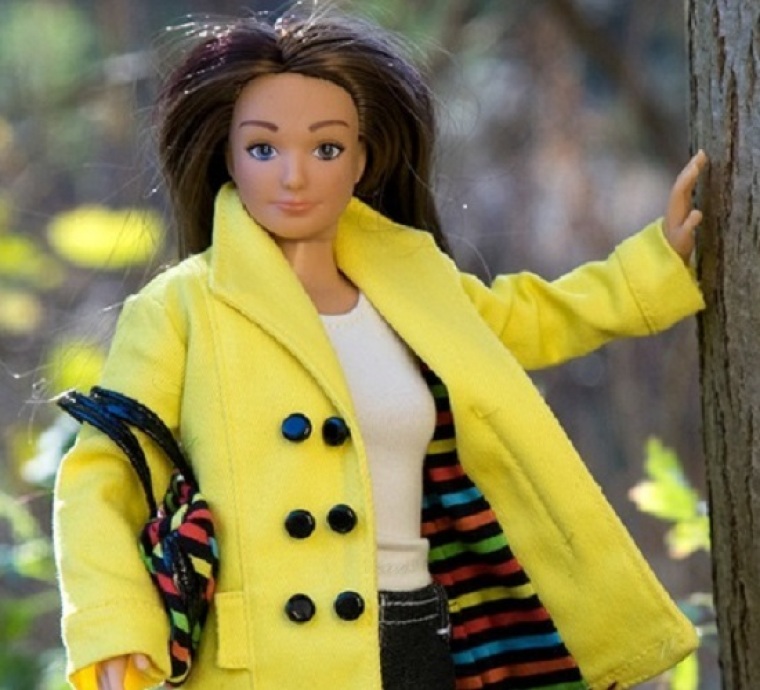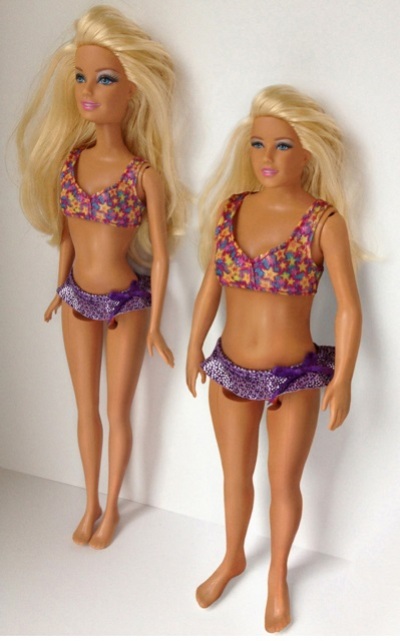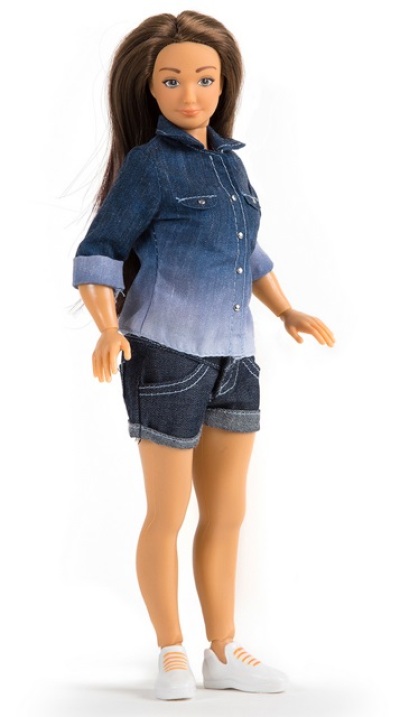Modesty advocate: New fashion doll figures to challenge Mattel's Barbie

PITTSBURG, Pa. (Christian Examiner) -- She looks nothing like a Barbie doll and that's by design.
Nickolay Lamm -- who in his vocation as a graphic artist and designer is used to asking, 'What would that look like? ' -- tackled an art project over a year ago in which he intended only to show "how distorted fashion dolls are in relation to typical human body proportions."
Eighteen months later, Lamm's project has been birthed as the "normal Barbie" and dubbed the "Lammily" with realistic proportions and a figure to challenge Mattel's outmoded body ideals represented by its Barbie doll.
The creator is quick to point out the doll's name is not "Lammily," but the word is a kind of brand name that's a mash-up of his last name and the word "family" to acknowledge his family's involvement in the nascent project.
Meanwhile studies consistently reveal the kind of toys girls play with impact how they think about themselves, and an outspoken Christian advocate for modesty is pleased the doll is challenging notions about body image.
Christian author and speaker Dannah Gresh told Christian Examiner that play is a critical element in a child's life. She has been a leader in the movement to encourage tweens and teens to be modest and to pursue purity with her Pure Freedom initiative. Her most recent books are Six Ways to Keep The Little in Your Girl and Six Ways To Keep the Good in Your Boy. Gresh co-authored Lies Young Women Believe, the best-selling book in the 2010 Christian Booksellers Association youth market.
"Creative role playing is practice for future life, as teenagers and adults," she explained.
Gresh said when little girls play with the more sexual dolls, such as the unrealistically shaped Barbie dolls, they are often confining their role-playing to boy-girl relationships and are not expanding to more healthy playtime activities.

Lamm conducted research to gain an approximation of the average body proportion of a 19-year-old American female, and used the data to make a 3-D model, which he compared side-by-side to an actual Barbie doll -- both wearing the same clothes and make-up.
The differences in body shape were startling.
Once the project, which had nothing to do with creating a line of toys, was made public, Lamm was deluged with people interested in buying a doll that had the physical attributes of his digital creation. He launched a crowd-funding effort, with a slogan of "Average is Beautiful," to get a sense of the interest in the doll and raised more than $500,000 in a month.
Now more than 30,000 of the Lammily dolls with "realistic beauty standards" have been ordered on his website.
Gresh told the Examiner, "There is a lot of merit in giving a girl a doll like this to play with versus one that is unrealistic and sexual." Some critics counter that her concerns are overblown and that children understand these dolls are just "fantasy or make-believe," she said. But Gresh is not buying their dismissive attitude.
She said a recent study observed youthful subjects playing with either a Barbie doll or a Mrs. Potato Head, and the girls who played with the Barbie self-limited their career choices compared to the girls who played with the other toy. The study concluded that "Early exposure to sexualized images may have unintended consequences in the form of perceived limitations on future selves."
Gresh said she has long recommended Groovy Dolls -- she calls them "modern-day rag doll" -- as a better choice than Barbie.

"Lammily" offers a more life-like substitute.
Lamm said his project emerged in part because of his "own share of insecurities," but also because of a cousin's struggles with her body type.
"I've grown up alongside of my younger cousin," he shares on his website. "Now she is a 19-year-old competitive collegiate athlete and top student, a beautiful young woman, and an inspirational person."
But being a succesful athlete did not help with her self-image
"All muscles, she used to call herself 'fat,'" Lamm recalled, adding that "she could only look 'fat' if compared to exceptionally thin beauty standards."
Lamm said owners of his creation will be allowed to customize the doll by naming it, fashioning a passport for it and by applying reusable stickers to enhance reality of play -- customers can buy packets that include bandages, stitches, scrapes, and mosquito bites, as well as grass and dirt stains.
He also plans to produce dolls reflecting the diversity of other races and ethnicities.